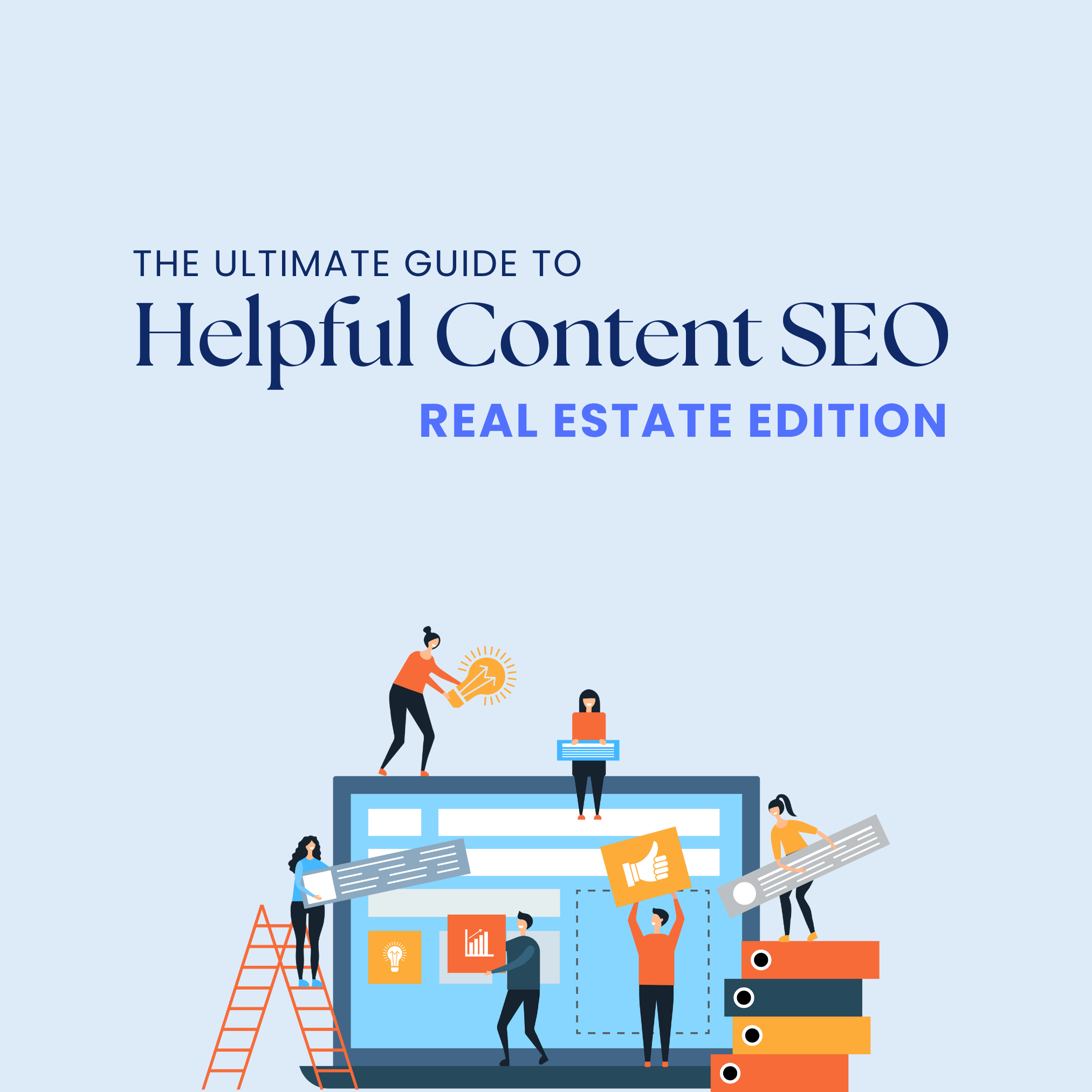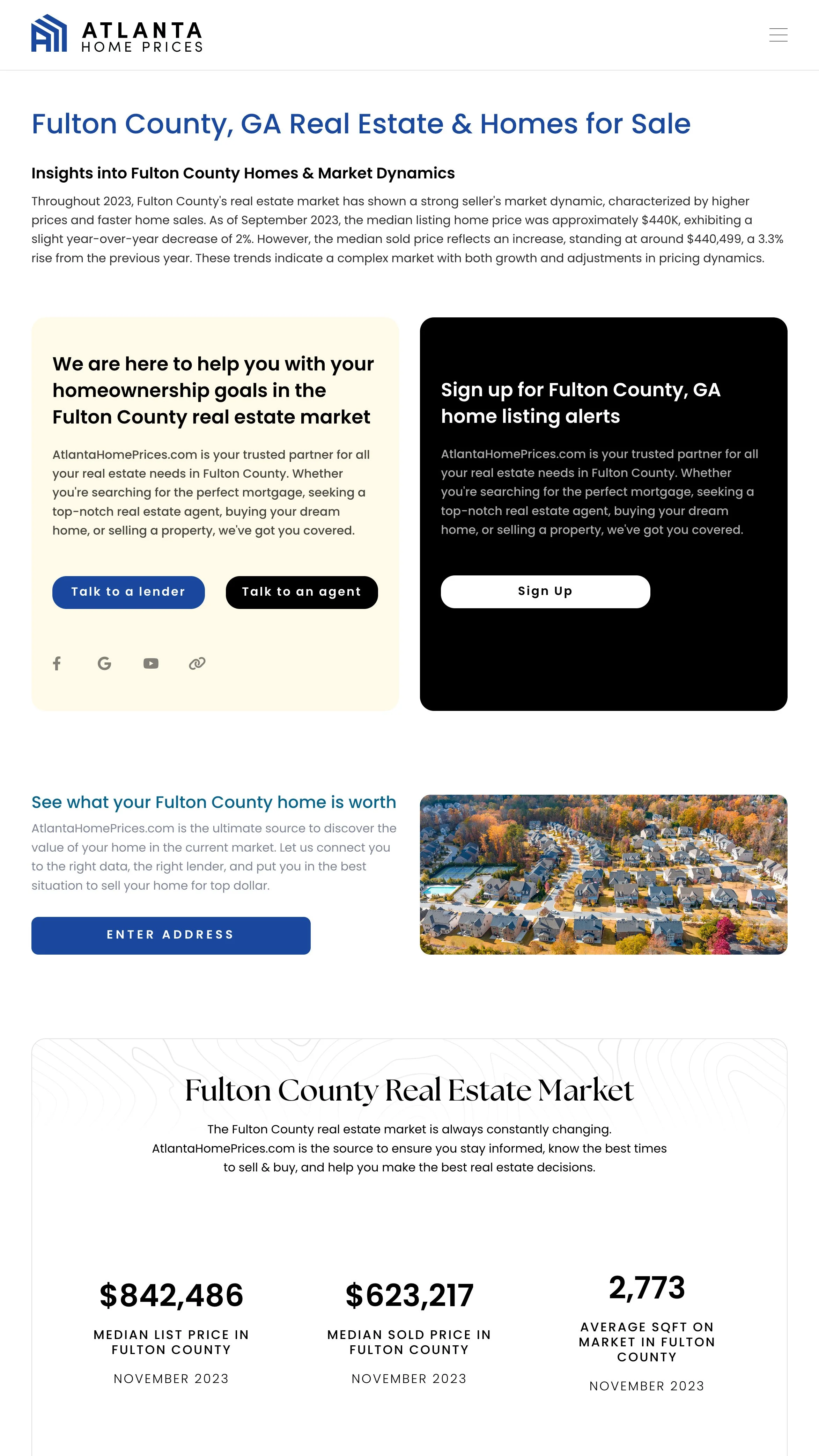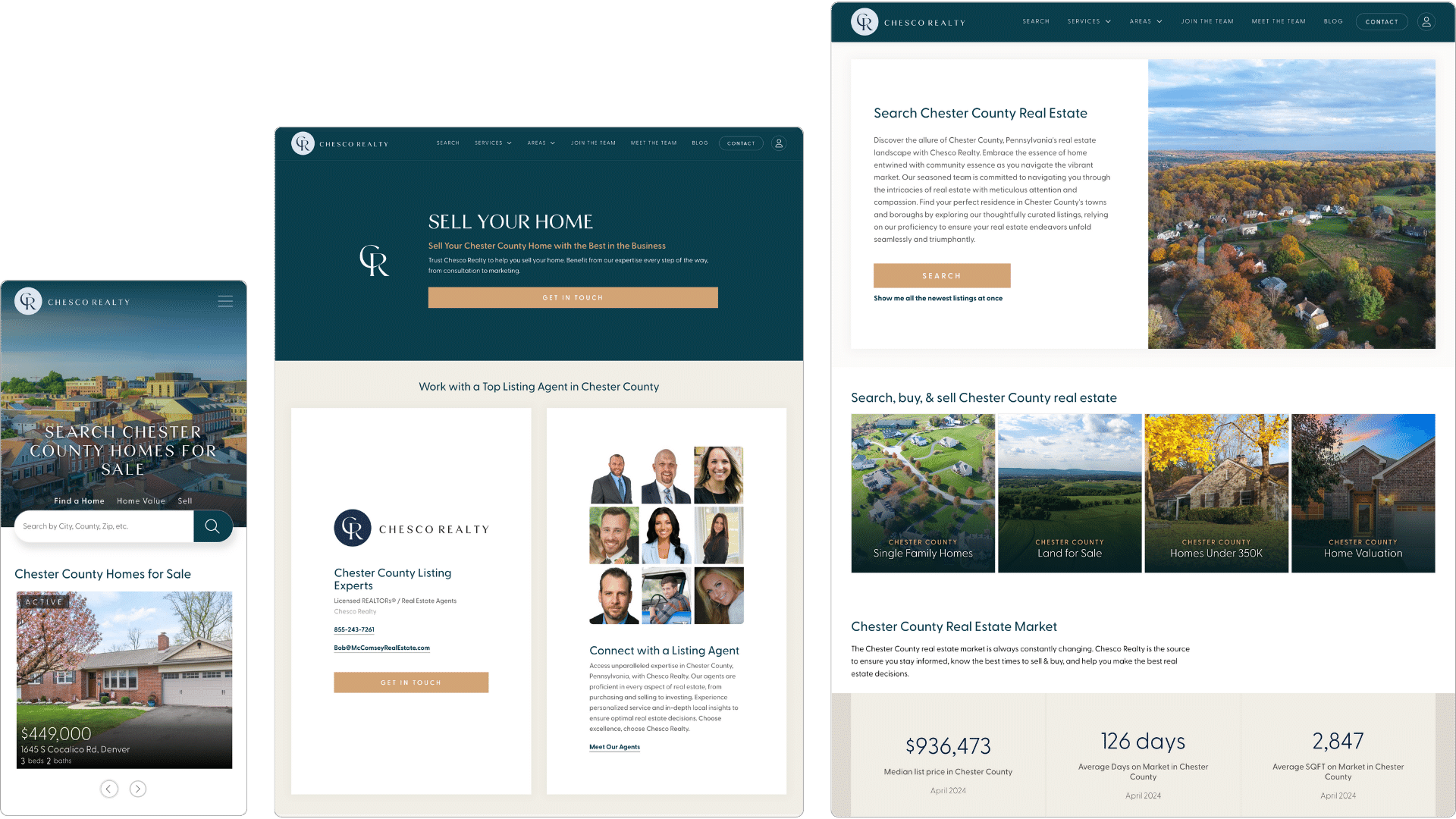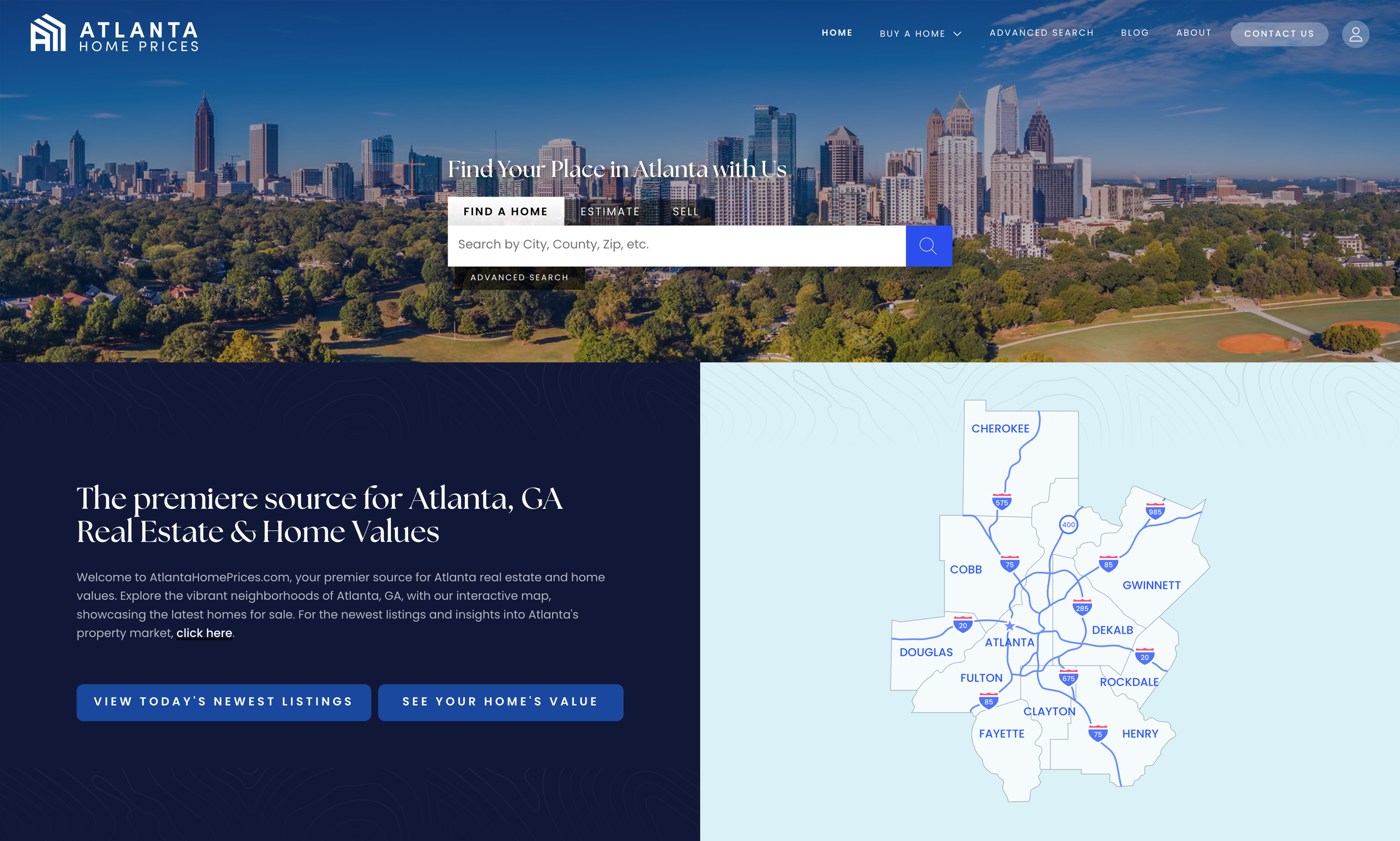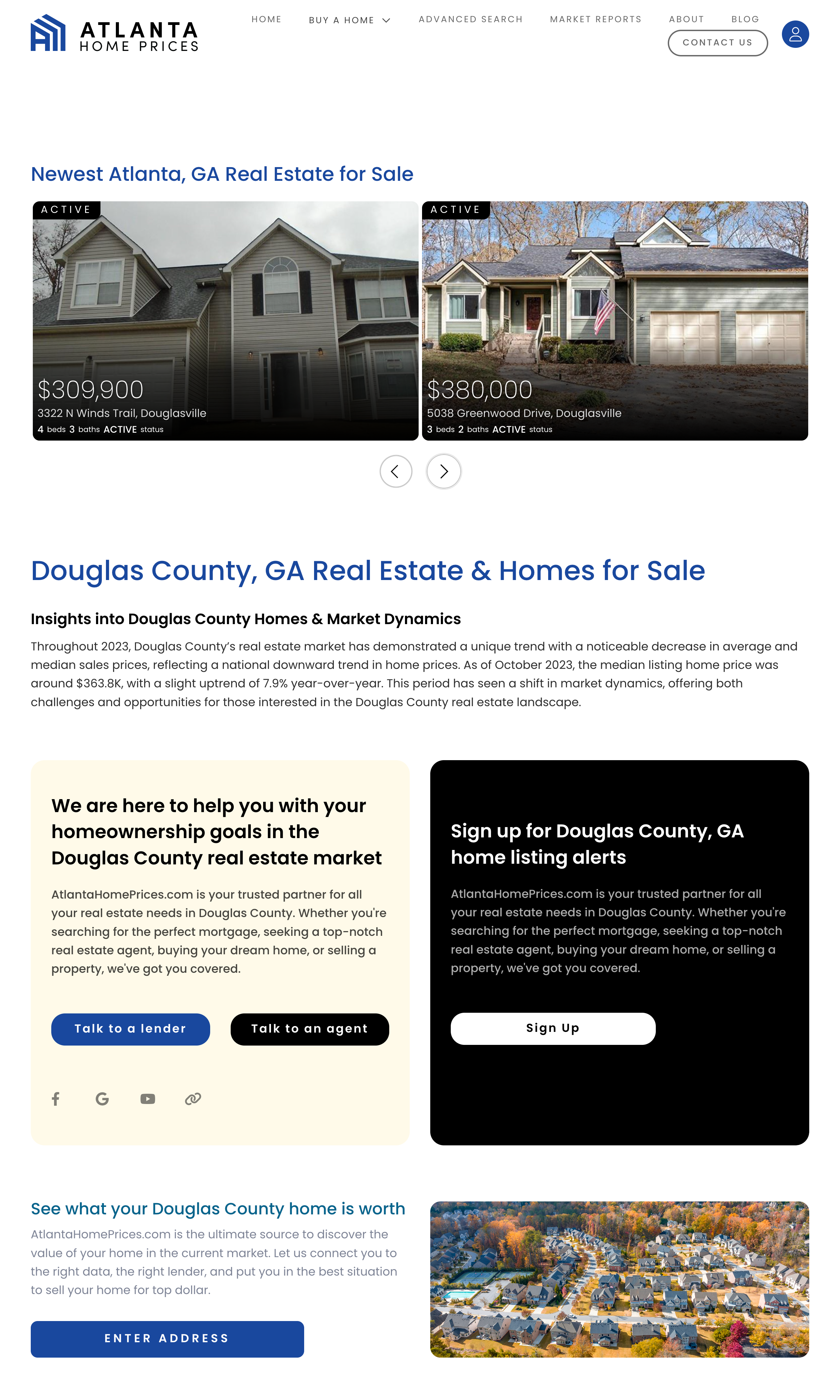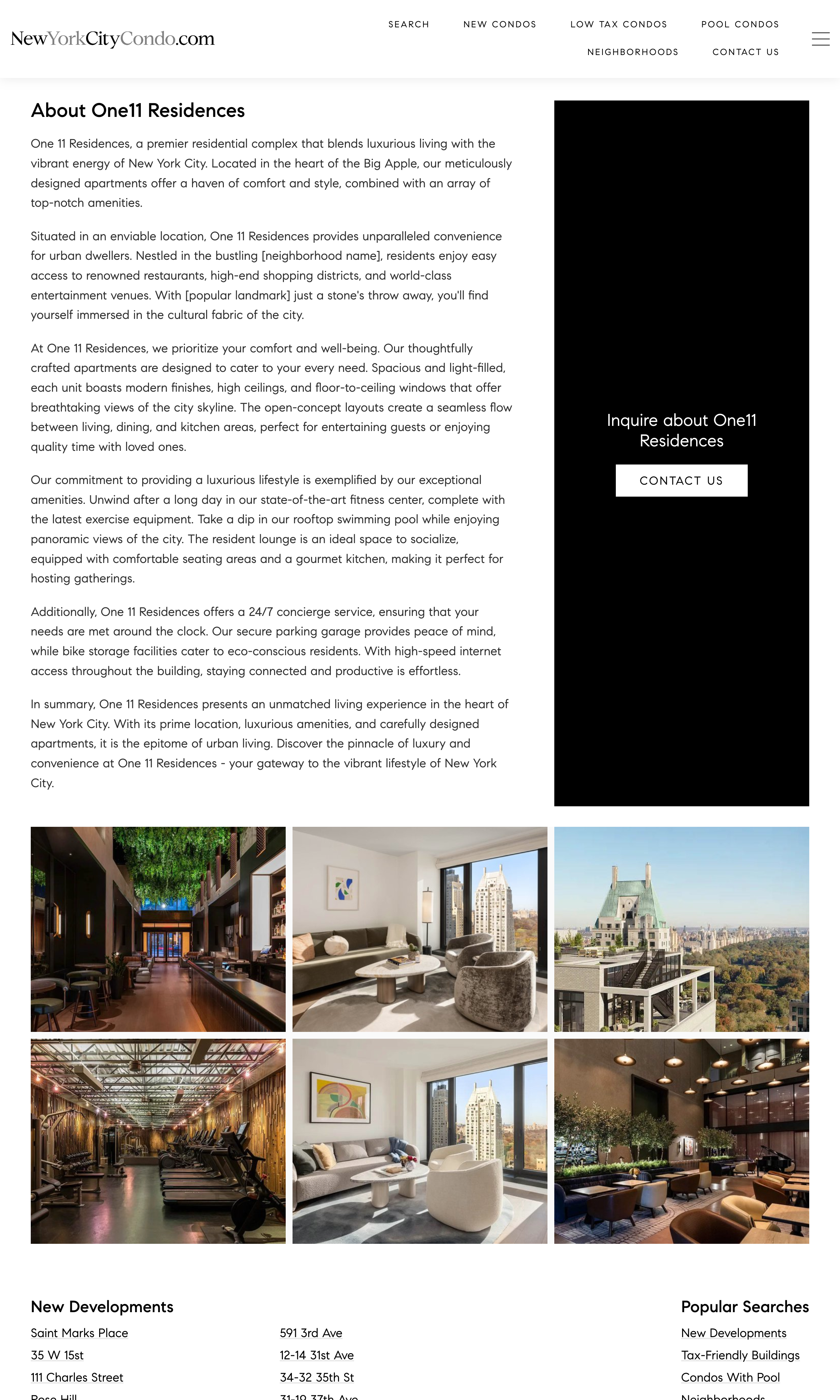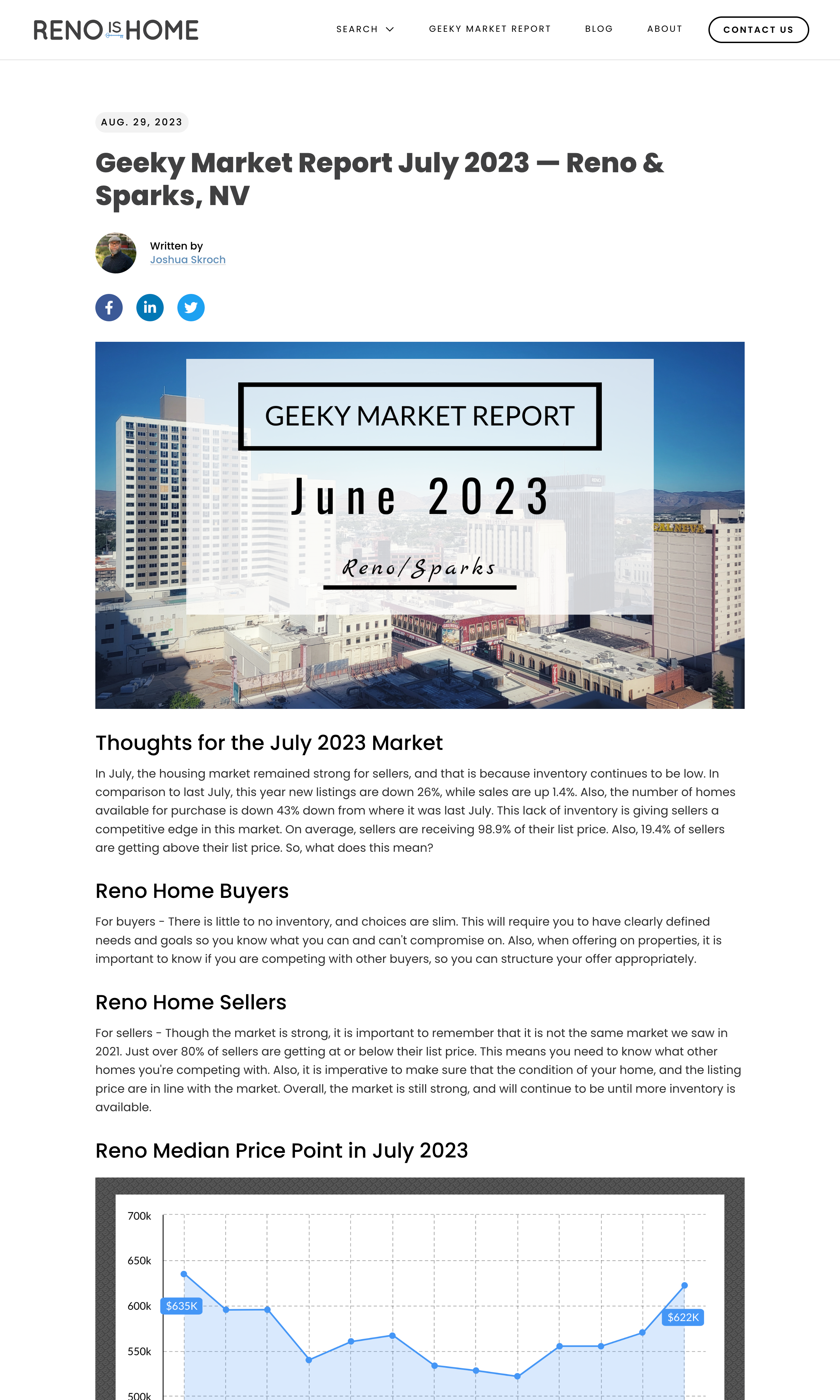The Ultimate Guide to Helpful Content SEO: Real Estate Edition
Simply put — these days Google's ranking systems prioritize content that genuinely benefits users, rather than merely aiming for higher search engine rankings. You can read the official article here from Google talking about their people-focused, helpful content approach to their new visibility algorithms here.
This guide focuses on helping real estate agents craft material that aligns with such standards. To ensure your real estate content meets quality benchmarks, self-assessment is key. Ask yourself critical questions about the usefulness and reliability of your content. It’s also beneficial to get feedback from unbiased sources. Additionally, analyze any traffic drops to understand how your content compares against these quality metrics.
Why would someone want to use your real estate website in 2024?
We are in an era where information is easily accessible — listings are easy to find, everyone has the Redfin or Zillow app. Mortgage calculators are everywhere. You can even view listings easily without committing to an agent with Redfin.
So this begs the question when it comes to your website, generating traffic, and getting conversions in 2024— why the heck would someone want to use your site anymore?
We are going to answer that in this entire guide — its an exciting time, but it will require big changes in thinking and tons of adjustments. Let’s go.
Want SEO help from us? We offer services that execute everything in this article so you don’t have to. Contact us to get your questions answered + schedule a demo.
1. Key Questions to Assess Content Quality
Is your content original, offering new insights, research, or analysis? Every real estate website has listings, how do you stand out and what new value are you offering?
Does it thoroughly and comprehensively cover the topic?
Are there unique insights or information beyond the basics?
If sourced, does it add significant value and originality rather than just paraphrasing?
Are headings and titles accurate and not overly sensational?
Would this content be bookmark-worthy or shareable?
Could this content be recognized in reputable publications?
Does your content stand out in search results for its substantial value?
Are there any issues with spelling or style?
Is the content professionally produced, or does it seem rushed or carelessly made?
Is it individually crafted or mass-produced with less attention to detail?
2. Evaluating Real Estate Expertise
Does the content convey trust through clear sourcing and demonstration of expertise?
Would research on the site affirm its credibility and authority in real estate?
Is the content authored or reviewed by knowledgeable individuals in the field?
Are there any factual inaccuracies?
3. How To Optimize Your Page Experience for better SEO
Google's emphasis on rewarding content that offers a good page experience highlights the importance of integrating user experience (UX) design into your SEO strategy. A well-designed UX not only keeps users engaged but also contributes significantly to SEO performance. Here’s how you can optimize UX for better SEO:
User Engagement Focus:
Interactive Elements: Incorporate interactive features like listings sliders, market reports, accordions to keep users actively engaged.
Rich Media: Use videos, images, and infographics to break text monotony and keep users interested.
Compelling Calls-to-Action (CTAs): Strategically place CTAs to guide users through your site, encouraging them to interact further.
Above the Fold Techniques:
Immediate Value Proposition: Ensure the most important and engaging content is visible above the fold.
Fast-Loading Elements: Optimize images and scripts to ensure quick loading times for above-the-fold content.
Engaging Headlines and Visuals: Use captivating headlines and visuals above the fold to grab user attention instantly.
Consistent and Recognizable Branding:
Visual Identity: Use a consistent color scheme, typography, and graphical elements that reflect your brand.
Brand Voice: Maintain a consistent tone and style in your content that aligns with your brand identity.
Branding in Metadata: Reflect your brand in title tags, meta descriptions, and URLs for a cohesive presence.
Navigation and Structure:
Intuitive Navigation: Design a clear, easy-to-use navigation menu that helps users find information quickly.
Logical Content Hierarchy: Organize content in a logical structure, using headings and subheadings effectively.
Breadcrumbs: Implement breadcrumbs for easier navigation and a clear understanding of the site's layout.
An example of good page experience
Responsive and Mobile-Friendly Design:
Adaptive Layouts: Ensure your website adapts to different screen sizes and devices.
Touch-Friendly Interfaces: Optimize for touch navigation on smartphones and tablets.
Mobile-First Approach: Prioritize mobile UX, considering the increasing prevalence of mobile search and browsing.
Examples of Real Estate Websites with Good Page Experience
Want to see more examples? We are happy to demo you more to get you more ideas, contact us to setup a call.
Loading Speed Optimization:
Optimize Images: Compress and resize images to reduce loading times.
Minimize HTTP Requests: Reduce the number of elements that need to load, like scripts and CSS files.
Leverage Browser Caching: Store frequently used elements locally to speed up subsequent page loads.
Accessibility Considerations:
Alt Text for Images: Provide descriptive alt text for images, aiding screen readers and SEO.
Keyboard Navigation: Ensure your site can be navigated using a keyboard, catering to users with different abilities.
Contrast and Font Size: Use high contrast and readable font sizes to make your content accessible to all users.
Content Layout and Readability:
White Space: Use white space effectively to prevent clutter and improve content readability.
Short Paragraphs: Keep paragraphs short and easy to scan. Break them up in between CTAs and images too for better readability.
Bullet Points and Lists: Use lists and bullet points to break down information into digestible pieces.
Feedback and Improvement:
User Feedback Collection: Regularly collect and analyze user feedback to continuously improve UX.
A/B Testing: Conduct A/B testing to find out what layouts, colors, and content work best for your audience.
SEO and UX Synergy:
Keyword Integration in UX Elements: Seamlessly integrate keywords in navigational elements and CTAs.
Structured Data: Use schema markup to enhance the presentation of your website in search results, improving click-through rates.
By integrating these UX principles into your website design, you not only enhance the user experience but also improve your site’s SEO performance. A well-designed UX leads to longer visit durations, lower bounce rates, and higher engagement, all of which are favorable signals to search engines.
4. Creating People-First Content
Creating people-first content is crucial for building a strong online presence. This approach is not just about being user-friendly; it's about providing genuine value to your audience through expert insights, tailored information, and a seamless user experience (UX). Here's how to optimize your real estate content with a people-first mindset:
-
Begin by identifying the specific needs and questions of your target audience. Are they first-time homebuyers needing guidance, or seasoned investors looking for market trends? Use these insights to create content that addresses their unique challenges and interests in the real estate sector.
-
Leverage your real estate knowledge to provide authoritative content. Share insights from your experience, like navigating market fluctuations or tips for home staging. This firsthand expertise not only boosts your content’s credibility but also enhances its SEO value by aligning with Google’s E-E-A-T guidelines.
-
Develop content that is both engaging and informative. Use storytelling to make complex real estate concepts relatable. Include case studies, success stories, or market analysis to make your content more compelling and educational.
-
Incorporate relevant real estate keywords naturally within your content. Focus on long-tail keywords that your target audience might use in their search queries. However, avoid keyword stuffing; the primary goal is to maintain the natural flow and readability of the content.
-
Enhance the user experience by integrating visuals like infographics, charts, and videos that explain real estate trends or showcase properties. Interactive elements like mortgage calculators or virtual home tours can also significantly improve engagement and UX.
-
Given the increasing use of mobile devices, ensure your content is mobile-friendly and accessible. A responsive design that adapts to various screen sizes is essential for keeping mobile users engaged.
-
Your content should empower readers with actionable advice. Whether it’s steps for a first-time home purchase or tips for property investment, practical and clear guidance is highly valued by readers.
-
Invite readers to engage with your content through comments, questions, or social media sharing. This interaction not only improves user experience but also signals to search engines that your content is valuable and engaging.
-
The real estate market is dynamic; regularly updating your content ensures it remains relevant and informative. This can involve revising statistics, market trends, or regulatory changes.
-
Use analytics tools to track how users interact with your content. Monitor metrics like time spent on page, bounce rate, and feedback received. This data can guide future content strategies, ensuring continuous alignment with user needs and interests.
5. Avoiding Search Engine-First Content
Be wary of creating content solely for search engine appeal. Content that is overly focused on trends or keyword-stuffing, lacks depth, or leaves readers seeking more information elsewhere can negatively impact your SEO efforts.
An example of what NOT to do on your pages:
Seattle 1 Bedroom Homes & Real Estate for Sale
Seattle 2 Bedroom Homes & Real Estate for Sale
Seattle 3 Bedroom Homes & Real Estate for Sale
Seattle 1 Bathroom Homes & Real Estate for Sale
Seattle 2 Bathrooms Homes & Real Estate for Sale
Seattle 3 Bathrooms Homes & Real Estate for Sale
Your pages that contain content like this will likely be deemed by Google as not helpful moving forward. Those days are gone. You are not trying to create a directory, or a keyword-stuffed page anymore in hopes of raising your traffic — you want to build pages that people actually want to use now. This is what Search Engines will prioritize and are programmed algorithmically to show prospective users moving forward.
Removing unhelpful content to improve my rankings?
Believe it or not, Google has suggested that removing unhelpful content may in fact boost your rankings and visibility. This means removing repetitive links, unhelpful links, widgets that just waste space, and the list goes on.
6. Understanding Real Estate SEO in the Right Context
SEO should complement people-first content, not dominate it. Familiarize yourself with E-E-A-T (Experience, Expertise, Authoritativeness, Trustworthiness) and Google's quality rater guidelines to align your content with these principles.
Experience in Real Estate
Share in-depth personal experiences in the real estate industry, including buying, selling, or renovating properties.
This is best done in blog format.
Feature client success stories, highlighting how your real estate experience helped them achieve their goals.
Also good for blog format, or testimonial pages.
Expertise in Real Estate
Demonstrate deep knowledge of the real estate market, covering aspects like property laws, market trends, and investment strategies.
Create educational content such as comprehensive guides, market analyses, or Q&A sessions to showcase your expertise.
“Ultimate Guide to ___” and “Top 5 Ways to ____” type blogs and content pages are a great way to do this.
Google now loves “how-to” type guides and FAQs. Here are two ideas to get the wheels spinning:
How to find a fixer upper in the Magnolia neighborhood of Seattle, WA
5 Things You Need to Know Before Moving to Renton, WA
Authoritativeness in Real Estate
Highlight any real estate awards, certifications, or recognitions you have received. Include your participation in industry events or publications.
Discuss collaborations or endorsements from reputable entities in the real estate sector to enhance your authoritativeness.
Trustworthiness in Real Estate
Maintain transparency in your services and business practices, including clear communication about property listings and honest market appraisals.
Include client reviews and testimonials that reflect trust in your services. Address negative feedback openly to build credibility.
Asking "Who, How, and Why" About Your Content:
Who: Ensure clarity about the authorship of your content.
How: Be transparent about how your content is produced, especially if automation or AI is involved.
Why: The primary purpose should be to help and inform people, not just to rank well in search engines.
Want help with your SEO + User Experience plan? We are here to help.
SEO is truly a longterm game that requires dedication and consistency. We understand not everyone has the time or resources to implement the strategies listed above, which is why we also offer all of this as a service too. Give us a ping and we can craft a well executable, consistent, holistic, & strategic SEO game plan that actually attracts your target audience + retains them in 2024 and onward. Talk soon!

